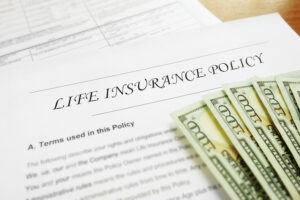The Millennial generation is now the least prepared for unexpected life events due to a lack of adequate life insurance coverage, according to the latest edition of New York Life’s Life Insurance Gap survey, released Nov. 13.
The survey asks Americans to compare how much life insurance they need, based on living expenses and plans for their loved ones, with the amount of life insurance protection they have in place. Millennials – who are age 22 to 37 this year – being the most exposed contrasts with the 2013 edition of the study, which found Gen X (38 to 53 years old this year) under the most pressure.
Millennials with life insurance have a self-reported life insurance gap of $352,000 in 2018, with enough life insurance protection in place ($100,000) to cover only 22% of their self-reported coverage needs ($452,000). The Millennial generation’s gap is sharply higher – 60% greater – than the gap for the general population, which is $210,000, enough to cover 49% of the average estimated need.
In addition, the survey findings illustrate that only 10% of Millennials have enough life insurance to cover 100% of their needs, which can include mortgages, funding retirements or financing a child’s college education. However, Millennials feel more financially secure than the overall population, with 81% saying they feel financially secure versus 76% of all respondents.
“While 10% of Millennials already enjoy the peace of mind that comes from taking a protection-first financial planning approach, too many members of this generation are starting a family or buying a home without access to replacement income if the worst were to happen,” said Brian Madgett, vice president, New York Life. “Life for young families is unquestionably busy and complicated, but there is security and peace of mind in looking beyond today, and knowing their loved ones are protected against future financial shocks.”
New York Life’s Life Insurance Gap survey examines the financial planning attitudes and behaviors of 1,738 Americans ages 25-70 who are married and/or have financial dependents, including 1,176 adults who have life insurance. The survey focuses on how much life insurance coverage Americans currently have in place and what they want their life insurance policies to cover in the event of the death of the breadwinner, resulting in a self-reported gap. Both the 2013 and 2018 gap surveys were commissioned by New York Life, the nation’s largest mutual life insurer.
Additional key findings from the Life Insurance Gap survey include:
- Despite feeling financially secure, 48% of Millennials are stressed about their current level of savings; 47% are stressed about planning for their future financial needs; and 40% are stressed about their current level of income and saving for their children’s education.
- 44% of Millennials are not financially prepared to deal with the death of a breadwinner and 42% are not financially prepared for the possibility of losing their job.
“Millennials are missing an opportunity to take a ‘protection first’ approach to financial goals such as saving for retirement or owning a home,” added Madgett. “Without life insurance, even the best laid plans can be ruined by the death of a breadwinner. The good news is that more than two-thirds of Millennials, who have the time and opportunity to better prepare themselves, say that having enough life insurance to protect their family is an important goal for them.”
Millennials in the hot seat compared to other generations
The gap for Millennials is significantly higher than other age groups. Gen X, on the other hand, reports a $253,000 gap (median amount of coverage in place $272,000 and self-reported coverage needs of $525,000), which is a 48% shortfall in coverage – a significant improvement from a 63% shortfall in 2013. Boomers report a $110,000 coverage gap (median amount of coverage in place $190,000 and self-reported coverage needs of $300,000), which is a 37% shortfall in coverage.
Survey Methodology
The 2018 study was conducted by Ipsos from June 12-26, 2018 on behalf of New York Life. For the survey, a sample of 1,738 adults between ages 25-70 from the U.S. was interviewed online, in English. This sample includes 1,176 adults who have life insurance and another 562 adults who have no life insurance coverage. To qualify for the survey, respondents had to be married and/or have financial dependents and have an annual household income of at least $50,000.
The 2013 survey was conducted by The Futures Company, an independent third-party research company, on behalf of New York Life. A total of 1,004 (unweighted) nationally representative online surveys were conducted from April 24 to May 1, 2013. Participants had to be at least 25 years of age, married or with financial dependents and/or have sole or shared household financial decision-making power, and had to have annual household income of at least $50,000.
Both surveys used generational information as defined by the Pew Research Center.
Gap Calculation
According to the survey, Millennial breadwinners reported a median of $100,000 in life insurance coverage. Respondents were then asked about the ways they planned to use their families’ life insurance coverage if needed. Options ranged from simply replacing the breadwinner’s income to covering retirement and college expenses. Based on the responses to these questions, the median amount respondents reported they would need from the breadwinner’s life insurance proceeds was $452,000. When contrasted with the $100,000 median amount of actual life insurance coverage, the typical Millennial American family faces a 78% gap between their financial goals and the money they would have available from their life insurance policies in the event of the breadwinner’s death.
About New York Life: New York Life Insurance Company (www.newyorklife.com), a Fortune 100 company founded in 1845, is the largest mutual life insurance company in the United States* and one of the largest life insurers in the world. Headquartered in New York City, New York Life’s family of companies offers life insurance, retirement income, investments and long-term care insurance. New York Life has the highest financial strength ratings currently awarded to any U.S. life insurer from all four of the major credit rating agencies**.
*Based on revenue as reported by “Fortune 500 ranked within Industries, Insurance: Life, Health (Mutual),” Fortune magazine, 6/1/18. For methodology, please see http://fortune.com/fortune500/
**Individual independent rating agency commentary as of 7/30/2018: A.M. Best (A++), Fitch (AAA), Moody’s Investors Service (Aaa), Standard & Poor’s (AA+)














Unfortunate, indeed. I have a very healthy amount of insurance in force, but most of my friends, who are Millennials, feel that either A. Their work coverage is plenty or B. They don't need it.
Sadly, most people do need it and need more than their employer provides. No, not everyone, but most.
For the cost of a pizza or two a month, Term coverage (the only kind people need) is very affordable.
Gee.. I guess people who outlive their term whose investments didn't turn out as expected didn't need any type of permanent insurance.. Or the millionaires that are taking advantage of the tax advantages of permanent insurance for estate preservation are foolish because they did agree with you. :skeptical:
For a mother and father of children under age 22, term for income replacement and college educations should be, in my opinion, the foundation of any family's insurance program. In this respect, for many families, it really may be "the only type they need." I have written more term this month that FE as I have gotten a number of referrals from my FE folks to talk with their children. Isn't $150,000 term going to be much more of a blessing, should it be needed, than a $25,000 whole life policy to such folks?
I have no problem with term.. recommended and sold two $200K term polices with child term riders on a young couple at the end of October.. Theirs was a need just as you mention.. Lots of responsibilities and little money..However, we discussed their looking to convert a portion of it to permanent before they got to the age where the premiums would be very high.. I don't write term on people that want to assure there is enough money to pay their final expenses no matter when they die. Or, if they ware wanting to leave a legacy for a favorite charity or someone in their life. ..Term has its place but so does permanent.. It depends on the problem you are addressing..
Had a couple like that tonight – she's 51, he's 55. He wants whole life FE and she is insisting they should just get "inexpensive" ten year $100K term policies. He finally gave in to her and he wanted each of them to get a term policy.
I guess some agents would just write the apps and let the chips fall where they may, but it didn't set well with me. I told them I didn't have the correct apps to write the term (which was sort of true, though I guess I could have downloaded them to my iPad then and there) and I'd come back on Friday. In the mean time, I asked them to think carefully about why they want this coverage, If it is truly intended to pay final expenses, 10 year term is just about the worst product for them to choose.
Let's go DT. One more post, and you're in the 1,000 post club. :jiggy:
How is the M generation's story any different than any generations?
Sorry been doing this for 30 years and haven't ever found a time where the majority of people made wise decisions about their insurance. I mean I spend a lot of time with 60ish people who "now" realize that they've got another 30 years and no life insurance. Some can afford the cost at that age and some can't.
I remember young people who are now old that thought they had this all figured out. The lack of a good insurance choice or plan isn't generational. No generation did it better than another.
I've been trying to market term to people my age (20s), and people don't think they need it or they think they will keep the third job they've had this year for the rest of there life. People past 25+ get easier to talk to but explaining the need of life insurance to kids around my age who blame the government for why they make minimum wage gets pretty challenging.
Make them a client first.
Here is an idea:
The female, if she is standard = Protective Custom Choice UL $21. and the premium does not blow up in year 11. It will decrease to $10,000 at age 80. Then level DB and slowly increasing premium. a 20 or 30 year not that much more.
$26 FE will buy a $10,000 policy. $10,000 will bury her so shallow a puppy could dig her up.
Or a $25,000 non med GUL is $28. – $35. month Guaranteed through age 121
Now – If they were considering a $25,000 for about $60mo. A $25,000 SIWL and $1000,000 10 year term combo fits.
The WL can be added later.
Make them a Client first.
Very affordable to what age?
What company do you lead with?
I'm not going to name the company I underwrite for because it isn't relevant, but as a young Millennial myself, if one prioritizes correctly, they can come up with $15-20/mo for term insurance. It's all about priorities.
It is obvious you really know nothing about real life insurance sales.. As an underwriter, you can sit in the ivory tower with your UW guides and have all the answers laid out before you. You don't have to deal with the financial carnage your recommendations create for the average consumer.. And, when taking your advice, it does matter what companies with which you are familiar because every company does not underwrite the same.
That's correct, each company has their own guidelines, but most are roughly in line with one another. I've been with 5 of the top life insurers in the country and have used a multitude of rating guides.
Nothing I've stated creates 'financial carnage' at all. Quite the opposite actually. See, I do know a lot about life insurance and the fact that I don't sell it, but yet see it every day, means I do not have the blinders on that agents have. They will sell crap, just to make a sale.
I love it when agents sell non-term crap because it pays my bills and keeps the insurance companies in business, but it doesn't mean it's the right decision. Being in my position, I can look at it impartially and not through the lens of an agent chasing a commission. I have very valuable advice on a lot of life insurance topics if you care to have a conversation and discuss.
Quit being such a dirtbag and listen to some of the things being said. You may disagree with some things and that's fine, but no need to be so belittling when I am actually quite an expert in the industry.
You can tell when your type starts losing an argument.. They always resort to name calling .. When you grow up, give me a call. :nah:
Your overconfidence details your inexperience. That quote in the middle shows your lack of product knowledge, which also may explain working at 5 different companies in your short career.
Somehow I don't see you lasting in this business. But when you explain it later it will be their fault, not yours. SMH
OK, you say you are a millennial and you have been an underwater for all east five different companies? Hummm.
Nothing you recommend creates financial carnage?!? How the hell do you know? Have ever even spoken to a prospect? Much less a person that has term'd out and now can not afford a rated policy or can not qualify for one at any cost? What is your experience with the aftermath of your expert advise?
You know a lot about what part of Life Insurance? I have clients in the defense industry. They work on assembly lines up armoring Humvees. That does not make them a Seal. Or take in come rounds.
You do not look though the agent lens because you are not qualified to touch the lens much less look through it.
"You may disagree with some things and that's fine, but no need to be so belittling when we am actually quite an expert in the industry."
"Quit being such a dirtbag and listen to some of the things being said."
I'd like to hear from some millennials on why they believe their age group is so under insured. It certainly has never been easier or cheaper.
Same reason we were..They think they are bullet proof.. Death is something that happens to someone else..
I was born in 1980 so, I am almost a Millenial. Since I didn't have any dependents when I was in my 20's, I instead invested intelligently in stocks, real estate, and business ventures. If I had dependents, I would have bought term. Yeah, my investments didn't go up in a straight line like life insurance would have (there were a few dips) but I made far more money with far less money than anyone could have with life insurance products. I have done well enough, that I mostly retired at 37. If I die today, my beneficiaries will be quite wealthy.
Now I am prepared to hear the commission life insurance salespeople tell me why I should have bought their products instead of investing in proven, logical, low risk, high return investments.
First of all, life insurance is not an investment vehicle. As to whether you now need permanent insurance depends on what you are calling wealthy and the tax situation where you live.
You may be waiting for a while. I do not imagine any experienced agent is going to make a blanket statement about how one type of insurance is best for you with out knowing you.
Life Underwriter,
According to the life insurance industry, their own statistics show LESS than 1% of term polices every pay the death benefit. The insurance company makes billions of dollars on term life policies. If the insurance companies make billions on term life policies logic says consumers are LOSING billions of dollars buying term life. Wouldn't that be true?
Why do insurance companies make $billions on term life?
Because, people are living longer. Even if term life policy holders keep up with their premiums, which most do not, they will out live their policies.
What happens when they out live their term life policies? They have no insurance. And, they are 20 or 30 years older. Sure they can buy another term policy. But, being 30 years older their premium is no longer cheap.
Here's another little statistic. Today the chances of getting cancer are 1 in 2 for men and slightly better for women. Fifty three percent of men born in 1960 will get cancer. For women born in 1960 47.5% will get cancer.
That means HALF of the people you sell term life to will get cancer. When half of your term life policy holders get cancer you can bet your last commission check they will NEVER miss a premium until their term expires. And what about heart attacks while they have the term policy? Strokes?
Then what do they do? Buy more insurance? Nope. Not with cancer. Or a history of heart attacks. Or a stroke. If they manage to find a company who will write them they will not be able to afford the premium.
What happens to the monthly premiums of a whole life policy if the insured gets cancer? Normally, the premium stays the same. And, even after the insured holder gets cancer the insurance company can NOT cancel the policy. Besides that, the insured can borrow the cash value tax free to pay for incidental costs of his cancer treatment. And, NOT have to pay the cash value back. Or let the cash value make the premiums.
So, how are you doing a favor to people by selling them term life? How are you doing them a favor by selling price instead of value?
Dave Ramsy loves term life. He says to buy term and invest the difference in the premium cost over UL or WL. Ramsy KNOWS the vast majority will NOT invest the difference. And, what he doesn't tell his naive viewers is he makes millions of dollars a year from his advertisers to promote term life.
Someone else may also be naive to the facts.
Have a great day!
tinman
Those that knock AD&D plans and promote term fail to consider both plans are actuarially priced according to the probability of the event occurring so there probably is not that much difference in payout in relation to premiums paid. .
I certainly hope so. Have you seen how CHEAP term life insurance premiums are?
I went to my website:
TERM4SALE | Term Life Insurance Quotes – Free & Unbiased – 100 companies
And ran a 20 year term quote for a 35 year old male non-smoker, in preferred plus health. The lowest premium was:
$400
That's $1m of term life insurance protection for $400 per year.
Assuming a life insurance company is just a charity, and not in business to make ANY money, they would need 2,500 people to buy that policy, in order to collect $1,000,000 in order to pay ONE, and only ONE death benefit that year.
1 over 2,500 is .04 percent. .04 would be less than 1. And that's for a life insurance company which wouldn't be making a dime.
If you add up ALL the premiums any one person pays for that 20 year term, from age 35 to 55, the total premiums collected over the 20 years on those 2,500 products would be:
$400 X 20 (years) X 2,500 (people) = $20 million dollars.
That means over 20 years, the life insurance company can ONLY afford to pay out 20 death benefits. That's 20 death benefits, over 20 years, for 2,500 people. That's .8%. (8/10 of one percent). And that's with the life insurance company making NO MONEY – paying out ever dime it collects.
The less than 1% comment better be accurate, or life insurance companies would go broke at these incredibly low prices.
As to this comment:
I would like to know where you got the facts underlying your claim. I note you said "company" and not "industry". Please, pick the biggest fattest company you can, and tell me how many "billions" they have made on term life insurance.
Anybody ever realized that the reason term premiums are so cheap is that term polices very seldom pay out?…:eek:
That would be a nice summary of what I said.
However, most whole life policies never pay a death benefit either.
Robert,
Of course you are correct.
I know, and should have said "the insurance industry".
Thanks for pointing it out to me.
About YOUR comment that says "whole life policies never pay a death benefit either".
I looked searched for the percentage of WL policies that paid the death benefit and can't find a source. Do you have one? "Most" is relative but I have a hunch the percentage isn't very high.
tinman
True but many that don't pay a death benefit pay a cash benefit so there is balance against the premium difference. It would be interesting to actually know if there is a difference in the plans profitability, which would be most profitable to the company.. No guesses, just the facts Ma'am.. I can say one thing for sure.. "Of the plans that are carried to maturity, there will be no difference in the percentage of death benefit..I am also willing to say that more WL reach that point .than term because of the increase in the term premiums after the inital term premium.
I, myself am hanging onto a $50K 15yr term.that I bought many years ago for $25 per month.. It is now $200 per month and increasing annually.. Ask me if I wish I had gone ahead and paid the WL premium back when I bought the term… :1biggrin:
I found this on a blog but he doesn't give a source for his numbers.
"Still, a broad percentage at least offers some insight into the fairness behind the juxtaposition of term life insurance to whole life insurance, so simply knowing the percentage of policies that wind up paying a claim is useful, and that answer is somewhere between 15 and 20% for whole life insurance"
I said "most" whole life policies never pay a death benefit. Obviously more whole life policies pay death benefits than term. I have two permanent policies that will pay death benefits, because that's why I bought them.
Back to the numbers. Several years ago a life insurance company executive told me they experience about a 5% per annum lapse ratio. I told him that based upon the rule of 72, that means half the policies are lapsed in 14 years. He agreed. And then another half of the remaining policies would be gone in 28 years. Right again. So after about 30 years, only about 25% of the policies are still in force, and they continue to drop.
Most policies lapse for planned reasons. I'll catch that in response to the posting that followed yours.
Actually many policies lapse because people are going for the cash. In fact many whole life policies are sold on the basis that a person is planning to cash them in retirement.
The cash value is NOT a refund of premiums paid, it is a refund of part of the premiums paid plus interest. The "cost" of insurance, which is no different than buying term life insurance, is still taken out of the premiums paid. I am quite convinced, after years of analysis, that the "term life" insurance you buy within a whole life policy, is not very competitive when compared with the term life you can get and buy in competitively priced term life insurance policies.
I did not say it was a refund of premiums paid.. I said that would offset some of the difference paid in premiums..
Assume $400 per year for a $200K 20 year level term.. Same thing in WL is $2400 per year…Both terminate at 20 years.. Term CV $0, WL CV $43K…. Client paid $8K for the term.. He paid $5K for the WQL.. ($48K premium paid minus $43K cash.) With interest adjusted, the WL is still slightly more expensive.. The question is would the insured actually invest the difference or would they put it in cars, gaming consoles, TVs, etc. The real advantage is if they still need $200K coverage, they can continue you at the same $2400 premium with CV increasing faster than premium paid at that point..
Just out of curiosity I put the same figures in a mid range IUL .. At the end of 20 years the Gtd, CV is only $29K but the current basis is $72K… Of, course the minimum cannot happen unless they pay minimum interest and charge max mortality from day 1.. There is a possibility that the projected current may not happen so it is safe to assume a person would most likely have somewhere in between in a worst case scenario. This is with option B increasing DB wso that the CV is always paid in addition to the face amount.
Or extended term
Or reduced paid up
Or maybe reduce premium by reducing face
Or sell the policy
Or change dividends to reduce premium
Or…….
The majority of my lapse surrenders are 1) can not afford the premium 2) no longer see the value in keeping the policy. Both are usually due to life changes.
I was using a mid range non par WL.
D-I-V-O-R-C-E ???:skeptical:
We're on the same page, don't be defensive.
OK, now we are not on the same page. $400 buys a $1,000,000 20 year term policy. That's $1,000,000 in coverage. What face amount are you getting with $2,400 per year for a whole life product?
Are you actually comparing a $200,000 whole life policy with $1,000,000 of term, as if that's a reasonable option/choice? I assume that if the 35 year old needs $1,000,000 of coverage, your whole life solution is going to leave his family in a lurch if he dies.
As to "what would be do with the difference?", who cares. It's his money. I would certainly encourage him to get involved in some form of investment/saving, but the first concern is being adequately covered if he dies.
I was quoting a mid range term and a mid range WL. Both are Columbian life.. Granted you can get better premiums with the term busters but you can also get better priced WL plans.. Also, I am using NTU standard rates not some super preferred rate.. Trying to keep everything apples to apples
Compulife rates range from $244 to $307 for same case scenario.. I am sure there are also WL rates that are better than my quote.
What was the face amount. I was using $1,000,000, which is the least a young family man should have today, especially when it can be purchase so inexpensively.
200K as I said originally.. Wasn't saying that was the coverage a person should or should not buy.
I'll sell you a FE policy .
It would have to be ROP…. 🙁
Why don't you just get another term policy lol?